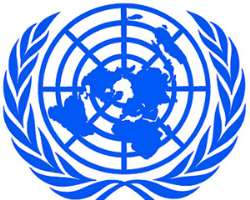Government of South Africa and United Nations sign new Strategic Cooperation Framework

PRETORIA, South-Africa, February 27, 2013/African Press Organization (APO)/ -- Deputy Minister of International Relations and Co-operation of the Republic of South Africa, Mr. Marius Llewellyn Fransman, and UN Resident Coordinator in South Africa, Dr. Agostinho Zacarias, launched the new United Nations Strategic Cooperation Framework 2013-2017 (SCF) at a ceremony at DIRCO yesterday. The SCF will provide the overall framework for the work of 17 UN organizations partnering with South Africa for the next five years.
At the launch, Deputy Minister Fransman stressed that South Africa's struggle against poverty, inequality and unemployment was critical to the successful realization of the development aspirations that South Africa not only had for itself, but also for others. “Our objective of a better life for all in South Africa is closely intertwined with our struggle for a better Africa and a better world for all…We have high expectations that the SCF will provide a framework for cooperation that will enhance the contribution of the UN system to realization of this vision.”
He added that the relationship with the UN team was strong. “I pick up the lively involvement of the UN with South Africa not only at the structural level but also at the people to people level.”
Dr. Zacarias emphasized that the UN's support to South Africa is aligned to the Government's National Development Plan (NDP): Vision for 2030. It also is based on the Medium Term Strategic Framework (MTSF), the New Growth Path (NGP) as well as sector specific plans. He expressed appreciation for the process of close consultation with the departments, representatives from the provincial level and other stakeholders. The work of the joint DIRCO-UN Country Team resulted in the identification of four thematic pillars for cooperation: • Inclusive Growth and Decent Work; • Sustainable Development; • Human Capabilities; and • Governance and Participation. These are complemented by three cross-cutting areas where the UN system has a comparative advantage: HIV & TB, Gender Equality and Human Rights. He stressed that youth development is also a priority theme.
The Deputy Minister cited a number of examples of UN support, including a knowledge-exchange regarding different models for development cooperation agencies. “These examples are benchmarks for South Africa's own visioning of its proposed development partnership agency”, he said.
In describing the UN's value added in support of policy and implementation, Dr. Zacarias stressed that the UN brings over 60 years of experience in broad-based development and work in countries all over the world.
Deputy Minister Fransman said that “the SCF is being signed at a time when South Africa has just started another three-year term on the UN Economic and Social Council (ECOSOC). This provides a useful platform for developing a common understanding of current and emerging challenges and a consensus on approaches to address them through a strengthened multilateral system.” A major focus of the ECOSOC agenda over the next few years will be the Post-2015 Development Agenda. South Africa will work towards policy coherence on development issues. It will also encourage Member States to commit to accelerating progress towards achieving the MDGs.
The Resident Coordinator and the Deputy Minister expressed their appreciation to the members of the UN and DIRCO teams for bringing the SCF to a successful conclusion.
The final version is available online for information at http://www.un.org.za/wp-content/uploads/2013/02/SA-SCF-2013-17-without-signatures.pdf
